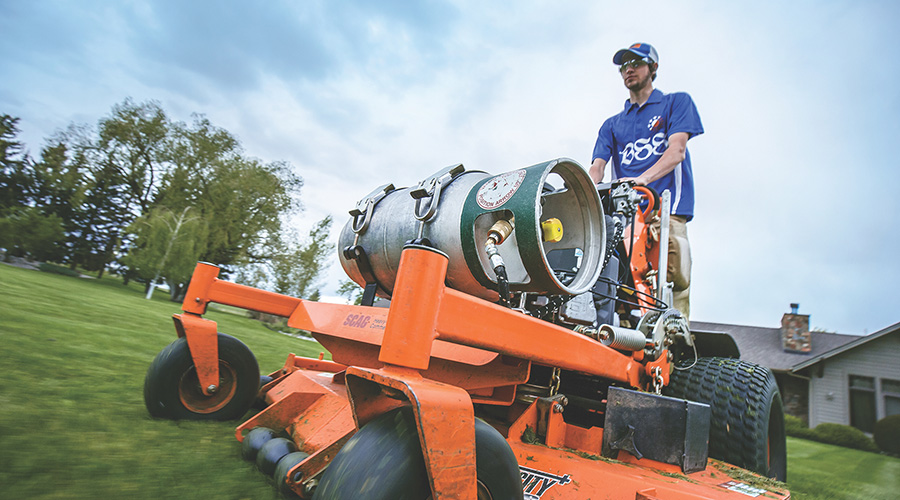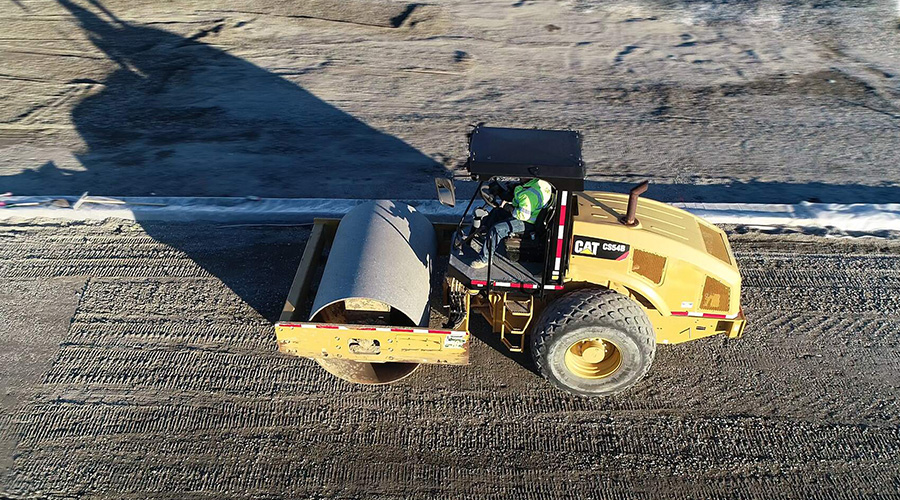Propane-Powered Equipment Meets Emissions Standards
Grounds managers have to ensure the proper maintenance of landscaped areas that include rolling lawns and lush foliage, but they also have to maintain the bottom line. Specifying mowing equipment powered by propane can help achieve both goals.
Each year, propane powers a growing number of off-road vehicles, including mowers, utility vehicles, and forklifts, as well as more on-road fleet vehicles, including buses, taxis, and delivery trucks.
Now more than ever, grounds managers in institutional and commercial facilities are switching from specifying gasoline engines on mowers and utility vehicles to engines powered by propane. Besides being easier on the environment and on an organization’s bottom line, propane is readily available, with an established distribution system and easy access.
Improving Air Quality
When used in commercial mowers, propane — also known as liquefied petroleum gas — can meet current and future emissions requirements established by the U.S. Environmental Protection Agency (EPA) and the California Air Resources Board.
Using propane can lead to as much as a 60 percent reduction in smog-forming emissions and an 80 percent reduction in toxic emissions, compared with diesel and gasoline fuel.
In addition to cleaner emissions, propane offers the following advantages:
• Propane does not deteriorate, so equipment operators do not need to drain the fuel tanks or add fuel stabilizer during equipment storage.
• Propane does not leave significant carbon deposits that cause premature engine wear.
• Propane is non-toxic and will not contaminate soil or water in the rare event of a leak.
• Propane virtually eliminates fuel theft because it exists in a closed system.
Related Topics:













